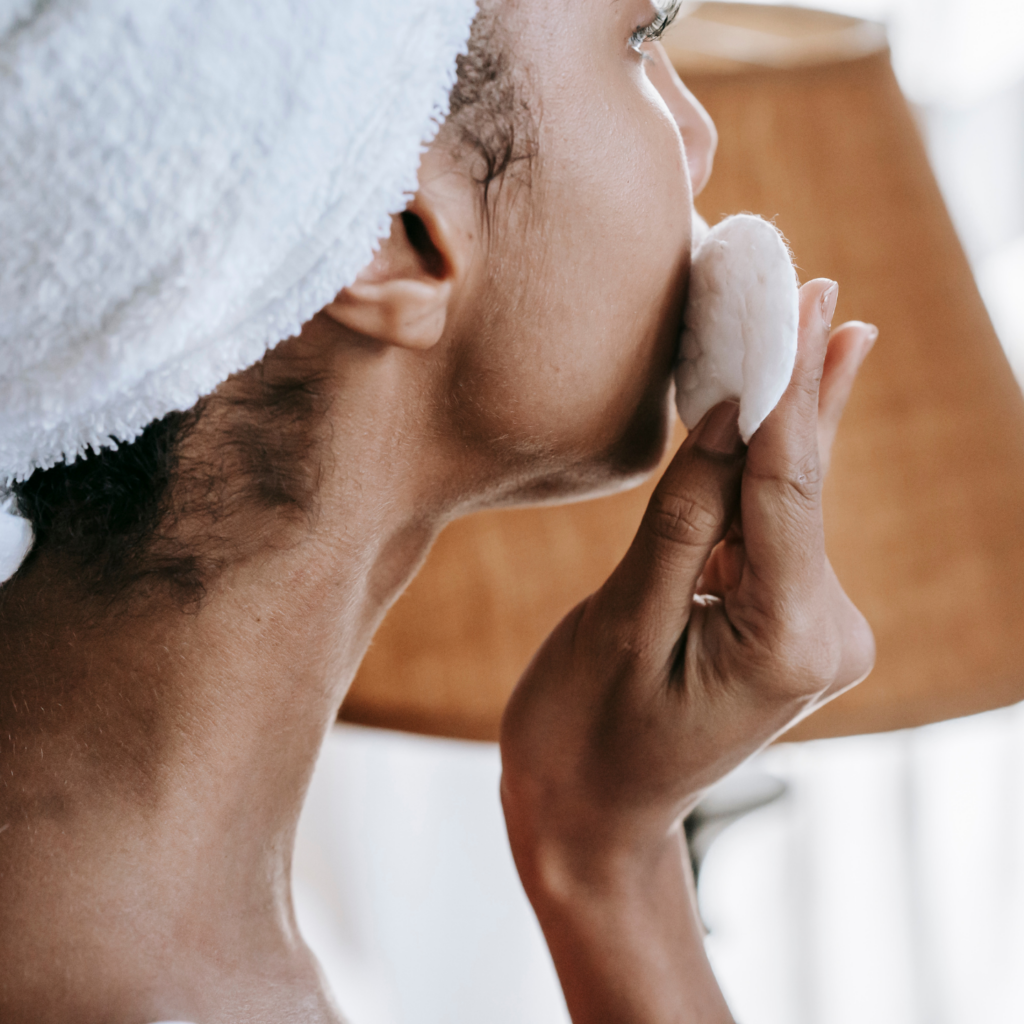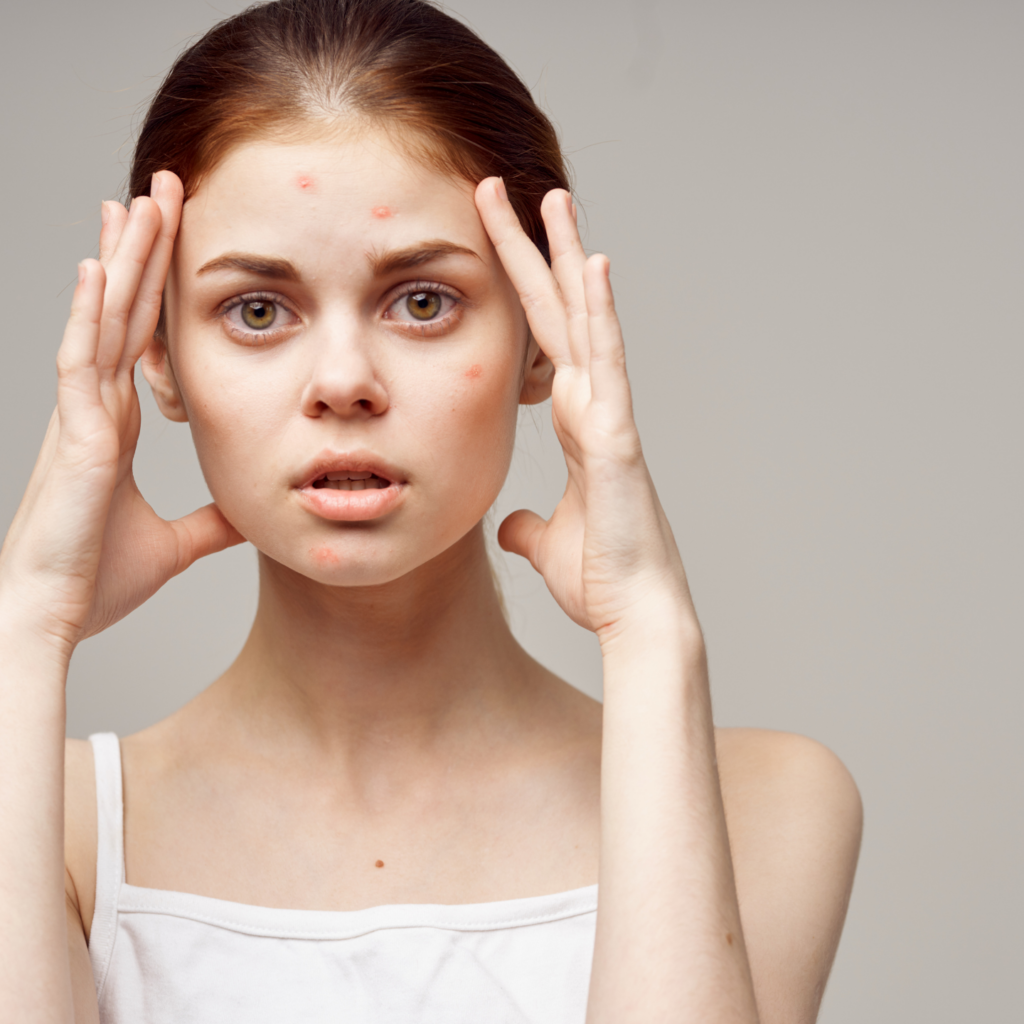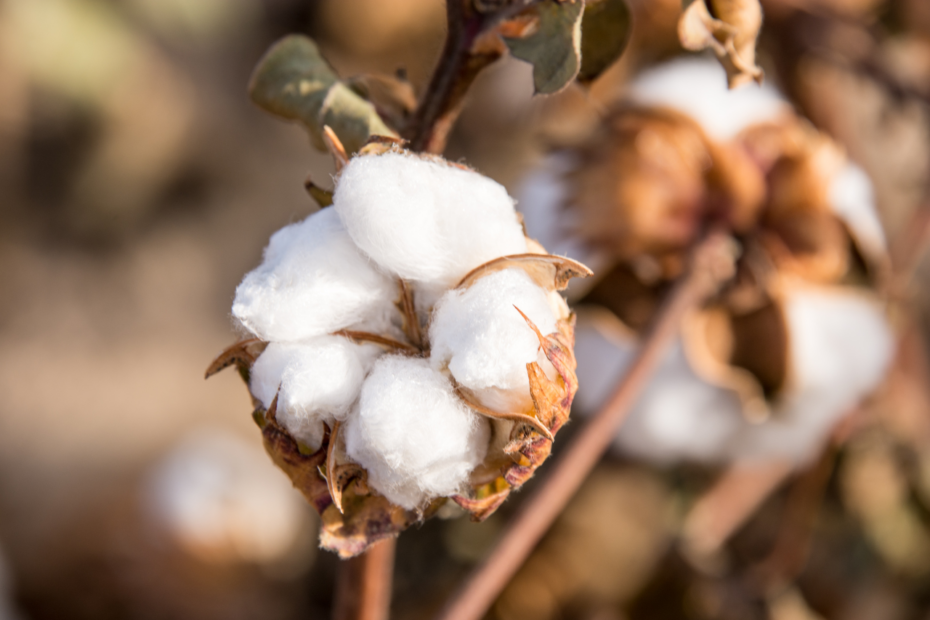Cotton—the fabric we know and love for its softness, breathability, and versatility. It’s the material that makes up everything from our favorite t-shirts to the underwear we wear every day. But here’s a surprising and unsettling fact: cotton is one of the most pesticide-sprayed crops in the world.
While we typically associate cotton with something natural, soft, and comfortable, the reality of how it’s grown is far from gentle. As a result, much of the cotton that ends up in our clothing comes with a side of harmful chemicals that we might not even realize we’re exposing ourselves to. Let’s dig into why this is concerning, especially when it comes to the clothing that comes into direct contact with our skin—like underwear—and what you can do to protect yourself. We’ll also take a look at other cotton-related products that might be affecting your health: cotton tampons and cotton balls used in your skincare routine.
The Hidden Dangers: Pesticides in Cotton
Cotton is a high-maintenance crop. It’s susceptible to a variety of pests, so farmers often use pesticides to protect their harvests. In fact, cotton accounts for between 5.7- 16% of global pesticide use, even though it only makes up around 2.5% of the world’s total agricultural land. Some of these pesticides, including chemicals like glyphosate (the active ingredient in Roundup), are sprayed on cotton fields in large quantities to manage weeds and insects.
But here’s the catch: These chemicals don’t just vanish after the cotton is harvested. They can stay on the cotton fibers, even after it’s turned into fabric. When you buy that soft, fresh cotton t-shirt or pair of cotton underwear, you’re potentially bringing those pesticides into your life—and onto your skin.
Why It Matters—Especially for Your Underwear
Now, let’s talk about the fabric that’s probably closest to your skin: your underwear. Unlike other pieces of clothing that may only touch your skin for part of the day, underwear is in constant, direct contact with some of the most sensitive parts of your body. The skin in your intimate areas is thinner and more absorbent than other parts of your body, which means it’s especially vulnerable to any chemicals or toxins that might be on your clothing.
Repeated exposure to pesticide residues through cotton clothing could lead to a variety of skin issues, such as rashes, irritation, and allergic reactions. But it doesn’t stop there. Some pesticides, like glyphosate, have been linked to more serious health concerns, including hormone disruption and even cancer in long-term exposure studies.

The Danger of Cotton Tampons: A Hidden Risk
Now, let’s talk about another product that often gets overlooked when it comes to cotton’s potential dangers: cotton tampons.
Like cotton clothing, conventional cotton tampons are typically grown with the use of pesticides and synthetic chemicals, including herbicides and fungicides. These toxins can remain on the cotton fibers and be absorbed by your body when you use tampons. The sensitive tissues inside your vaginal area are highly absorbent, and exposure to these chemicals can be harmful, potentially leading to irritation, inflammation, and even long-term health issues.
What’s more, some cotton tampons also contain bleach (used to whiten the cotton), which introduces even more harmful chemicals into the equation, such as dioxins—known carcinogens that can build up in your body over time. Although many tampon brands have switched to chlorine-free bleaching methods, the pesticides and other chemicals used during the cotton farming process may still pose a risk.


Your Skin May Not Be As
Clean As You Think
It’s not just your clothing or feminine hygiene products that could be carrying harmful chemicals—cotton balls that you might use in your daily skincare routine can also pose a risk.
Cotton balls are commonly used for removing makeup, applying toner, or using astringents, but most conventional cotton balls are made from cotton grown with pesticides. These chemicals can easily transfer to your skin, especially when you’re using them on your face, which has thinner and more sensitive skin compared to other areas of the body. The last thing you want is to rub harmful toxins into your skin while trying to cleanse or treat it.
Like with clothing and tampons, the exposure to these chemicals can lead to irritation, allergic reactions, or long-term issues like hormone disruption, depending on the amount and frequency of exposure. If you’re already dealing with skin sensitivities or acne, the chemicals from pesticides can make things worse by causing further inflammation or clogging pores.
There Is Good News!
The good news is, you have options when it comes to protecting your health and reducing your exposure to these harmful chemicals.
Choose Organic Cotton
Organic cotton is grown without the use of synthetic pesticides, herbicides, or fertilizers, making it a much safer choice for both the environment and your body. Organic farming practices also tend to be better for soil health and water conservation, so choosing organic cotton helps support more sustainable agricultural practices overall.Look for Certifications
If you want to ensure that your clothing and personal care products are truly pesticide-free, look for certifications like the Global Organic Textile Standard (GOTS) or OEKO-TEX Standard 100, which ensures that textiles are free from harmful substances and produced in an environmentally friendly way. When it comes to tampons or cotton balls, check for organic certifications like GOTS or USDA Organic, which ensure that the cotton is free from pesticides.Switch to Safer Period Products
When it comes to tampons, consider switching to organic, non-toxic alternatives. Brands like Seventh Generation, Daye and Cora offer tampons made from certified organic cotton, free from pesticides, bleach, and synthetic chemicals. You can also explore other options, such as menstrual cups or reusable cloth pads, to reduce exposure to harmful chemicals while also being more eco-friendly.Use Organic Cotton for Skincare
Instead of using conventional cotton balls, opt for organic cotton balls or pads, which are grown without harmful pesticides and are much gentler on your skin. Some brands even offer reusable cotton pads for skincare, which are an even better choice for both your skin and the environment.Support Brands with Sustainable Practices
More and more brands are becoming aware of the potential dangers of conventional cotton and are choosing to use organic cotton or other sustainable materials. By supporting these brands, you’re voting with your dollars for safer and more eco-friendly alternatives.Wash Your Clothes and Products Before Using Them
While washing won’t eliminate all pesticides, it can help to reduce their concentration. Be sure to wash new cotton clothes, especially those that will be in close contact with your skin, before you wear them. Similarly, washing your cotton pads or products before use may help remove some of the pesticide residues.
What's Important To Remember
While cotton might feel soft and comforting, it’s important to remember that its production comes with a hidden cost. The pesticides used in conventional cotton farming can linger on the fibers, potentially exposing you to harmful chemicals—whether it’s in your clothing, tampons, or even cotton balls used in your skincare routine.
By opting for organic cotton alternatives, checking for certifications, and switching to non-toxic, eco-friendly products, you can reduce your risk of pesticide exposure and protect both your health and the planet.
The next time you shop for clothes, period products, or skincare essentials, take a moment to consider where that cotton came from and whether it’s worth the risk. Your skin—and the Earth—will thank you.


About the Author
Leanne Shafner is our Project We Society Founder & CEO. She is also a heart-centered Holistic Health & Personal Development Coach, Herbalist and Aromatherapist. Her passion is inspiring women to thrive through self-care, natural/holistic living, essential oils/aromatherapy, herbal medicine, and learning new skills that result in personal growth. Through dedicating time to put in the work to find, know & love herself, she has overcome challenges & adversity in her life and learned the continual work that it takes to be at her best. Connect with Leanne at hello@projectwesociety.com.

